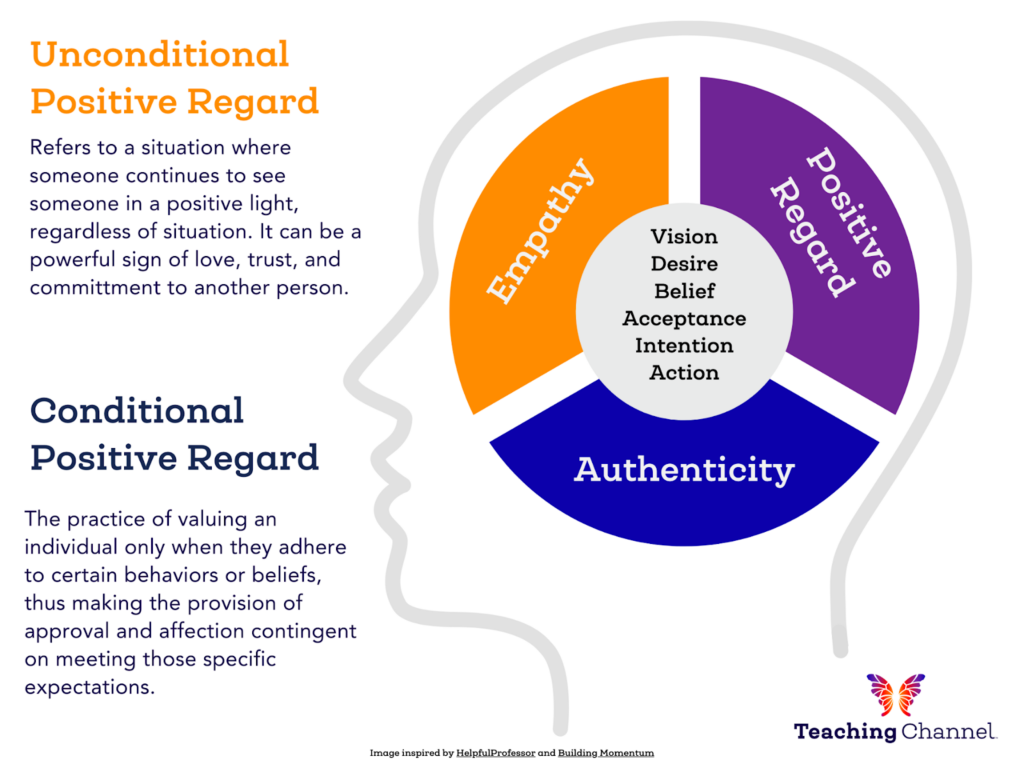9th-grade student Carina sat in the back of my class and scowled, seemingly at me. Every day. She wouldn’t participate, but she got good grades, and as I watched her more and more, I noticed she didn’t really interact with any other students. So, I started asking questions.
Me: How’s Your Day?
Me: Like, what kind of “fine”?
Me: Yea, but like, “amazing” fine, or “I’m sick but not dying” fine?
Me: Well, I hope the rest of your day is a “good” fine.
C: Fine.
C: I dunno. Fine.
C: (tinky smirk) I’m ok.
C: Ok. Bye.
Each day, I would make sure to greet her directly with this kind of tone. She started to increasingly warm up, and eventually, it became like this:
Me: Hey Carina!
Me: What’s New? How’s the day?
Me: Look at you! You worked hard! You’re a math queen, clearly.
Me: Math’s your thing, it seems?
C: Hey, Ms. HB
C: I dunno. Fine. I aced my math test this morning.
C: Clearly. (Smirk)
C: Yea, I dunno. It’s fine.
I got to know her slowly in this way; to get her to see that I cared about her, no matter what she was scowling at. Soon, she was visiting my classroom after school just to hang out and chat.
We know connecting with students is paramount to our work. It lays the foundation for better learning, and fewer issues of behavior challenges, and these connections demonstrate the ways in which all students are “worthy, valuable people.” (Venet)
Being worthy and valuable can be difficult concepts for all students to understand and feel, including those who are experiencing trauma and who are trauma survivors. Author Alex Shevrin Venet writes about demonstrating care for all students in her book, Equity-Centered Trauma-Informed Education. This is why we must practice unconditional positive regard in our classrooms (and lives!).

No matter what experiences contribute to making a student who they are—poverty, wealth, trauma, ethnicity, gender, challenging home life, supportive caregivers—all students deserve unconditional care and support: I am always going to be here to care for you, through struggles, mistakes, bad moods, or inappropriate behavior. Nothing can change my mind.
Yes, there are students who challenge us, and seem to focus purely on being disrespectful. This, Venet proposes, is where a shift in thinking is needed. She asked herself the question, “How would you respond differently if you knew the student’s behavior wasn’t a choice?” That can help reinforce the position of unconditional positive regard as you determine different strategies to connect with students.
When students feel valuable, worthy, and seen, we are showing them they deserve support and love. What a powerful message for anyone to feel!
Want to learn more about unconditional positive regard? Check out our course 5524: Re-Imagining Trauma-Informed Practices With Equity. Using Venet’s book, Equity-Centered Trauma-Informed Education, as the course text, this course will help you engage with ways to implement strategies to push back against deficit thinking, foster unconditional positive regard, and establish healthy boundaries within the classroom.






